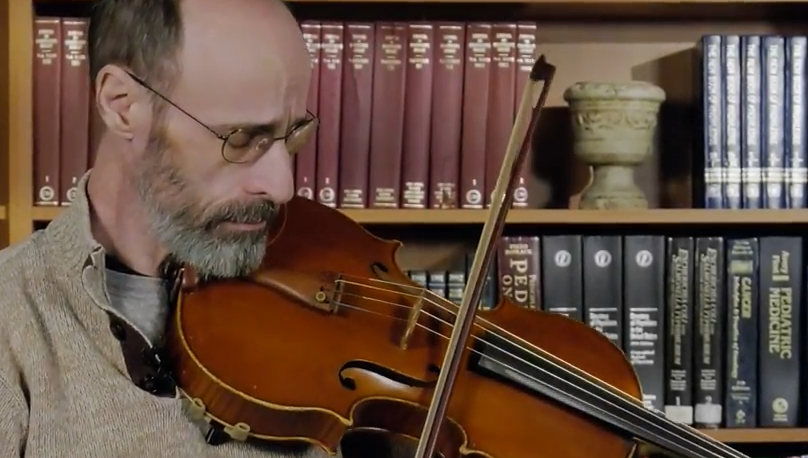
Extreme stomach pains sent David Rubinstein to the emergency department in December 2011. After emergency surgery, he was diagnosed with stage IV carcinoid cancer, a rare gastrointestinal tumor – leaving him to grapple with the uncertainty of his future.
“I live with the daily fear about what the future holds,” says Rubinstein, a professional musician who performed for more than 15 years before settling into teaching, which he does full time at Brown University.
Shortly after his diagnosis, Rubinstein saw Dana-Farber’s Matthew Kulke, MD, director of the Program in Neuroendocrine and Carcinoid Tumors, for a second opinion, and soon incorporated social work into his treatment plan.
Read More:
“Life doesn’t all of a sudden stop when you get cancer,” Rubinstein explains. “You have to pay the bills, go to work, do the wash, and yes, still try to find time to enjoy the moments.”
Rubinstein connected with Bruce MacDonald, LICSW, who helped him talk through the emotional aspects of his cancer – particularly the effects it has had, or could have, on his ability to teach music.
“Music is one of the things that makes me feel connected to the world,” Rubenstein says. “If all of sudden I can’t do that, that’s a humungous fear for me.”
Through discussions with MacDonald, Rubinstein finds ways to balance the physical part of his treatment, while coping with the hopes, fears, and unknowns that come with being treated for a rare, late-stage cancer.
“Social workers meet with patients at a moment of intense change; this is a moment most people haven’t faced before,” MacDonald explains. “Many find it reassuring that there’s someone involved who isn’t a physician, family member, or friend, to provide some guidance.”
MacDonald’s goal as a social worker is to help people put cancer in the background and continue to live their lives. For Rubinstein, it’s all about his musical practice.
“Social work is helpful in keeping me focused on my life and having a life,” he explains. “I practice my music every day because it makes me feel whole; it makes me feel like I’m more than my disease.”
Learn more about Rubinstein’s experience in the video below. If you are a Dana-Farber patient interested in speaking with a social worker, please call 617-632-3301.
